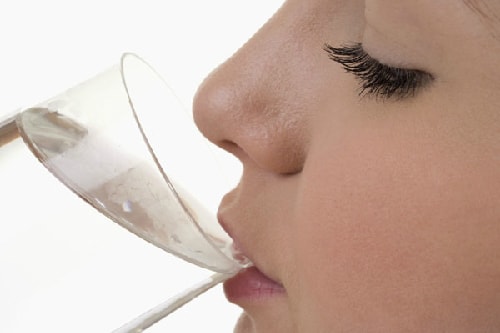Things to know when the body has a fever
Headaches and high fevers can be signs of developing meningitis. If you feel dehydrated, take Acetaminophen or Ibuprofen to reduce your fever.
A body temperature higher than normal is called a fever. Generally, a body temperature is called a fever when it reaches above 38 degrees Celsius. Fever is usually the body's response to an illness caused by a virus or sometimes bacteria. The body's immune system then starts to react to the invader by releasing substances that signal the brain to raise the body temperature above normal. This helps to kill the infection or many disease-causing microorganisms.
 |
| Fever and headache are considered a deadly combination. Photo: ojushealthcare |
Fever usually causes physical stress that is not considered dangerous, but increased body temperature causes increased risks to the body. To know the problems related to fever, The Health has provided some signs and symptoms that warn the body of fever:
1. Chills
Chills are referred to as a feeling of coldness after exposure to a cold environment. This feeling of coldness may be accompanied by shivering. Chills usually occur due to two things, one is when it is accompanied by a fever, the other is when it is exposed to a cold environment. Chills occur when the body produces heat when it feels cold. Exposure to cold also leads to hypothermia (a drop in body temperature).
2. Headache
Fever and headache are considered a deadly combination, but they are one of the most common symptoms. However, headaches accompanied by high fever can be a sign of developing bacterial meningitis. It is a life-threatening disease that can affect the brain and spinal cord. In addition, while the fever is mild, there will be symptoms of eye pain and facial muscle pain.
3. Convulsions
In some cases, a seizure called a convulsion is triggered by a high fever. This type of seizure is called a febrile seizure. This is quite dangerous and can be very frightening for parents. It occurs when the fever rises suddenly. Some illnesses that can cause this include roseola, stomach infections, and colds.
4. Dehydration
 |
| The higher the fever, the more water is lost. Photo: infrastructurene |
The higher the fever, the more dehydrated you become. Fever is also one of the factors that cause dehydration. If you feel uncomfortable and not enough water, you should try to supplement your body with Acetaminophen or Ibuprofen to reduce the fever.
5. Sweating
Sweating is a common symptom of fever. It usually occurs when the body temperature changes.
6. Diarrhea
Diarrhea is loose stools that are more frequent than usual. It is the opposite of constipation. People with fever often have abdominal pain.
7. Cough
Coughs usually develop a day or two after a fever. Symptoms that cause a cough include high temperature (fever), headache, etc.
8. Rapid heartbeat
A rapid heartbeat is also a reaction of the body when having a fever. However, it is considered annoying and worrying because of the many problems associated with a rapid heartbeat. Some of the causes of this symptom are anemia, low blood pressure, dehydration and high fever.
Treatment will vary depending on the cause of the disease. In case you have a high fever with the above symptoms, you should consult a doctor for timely intervention.
According to Vnexpress






